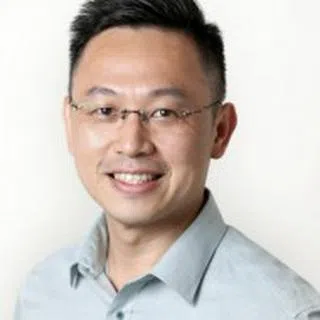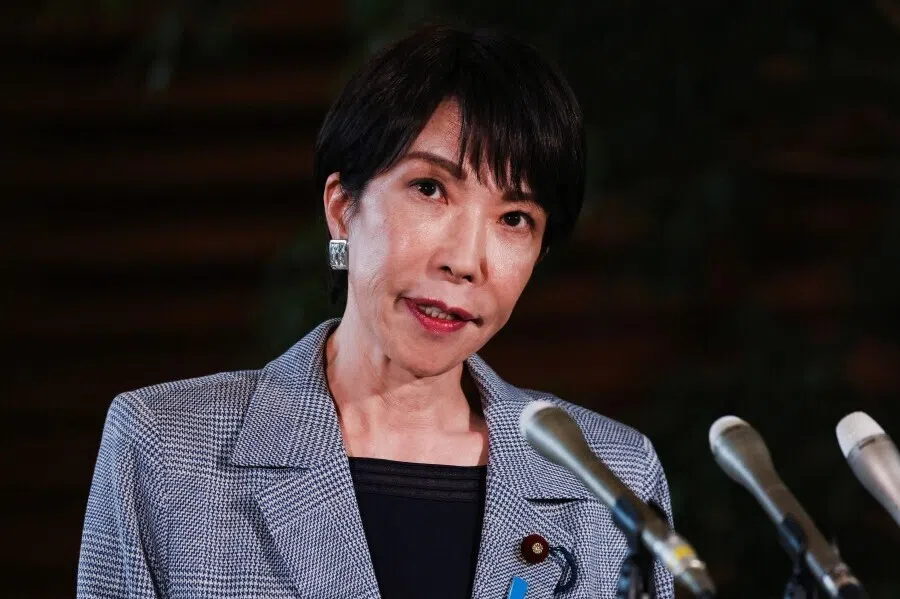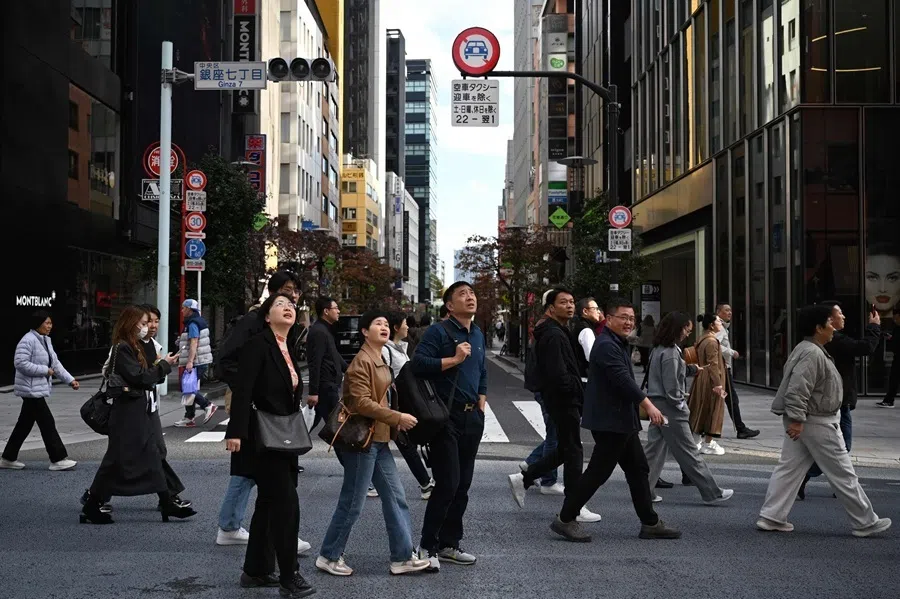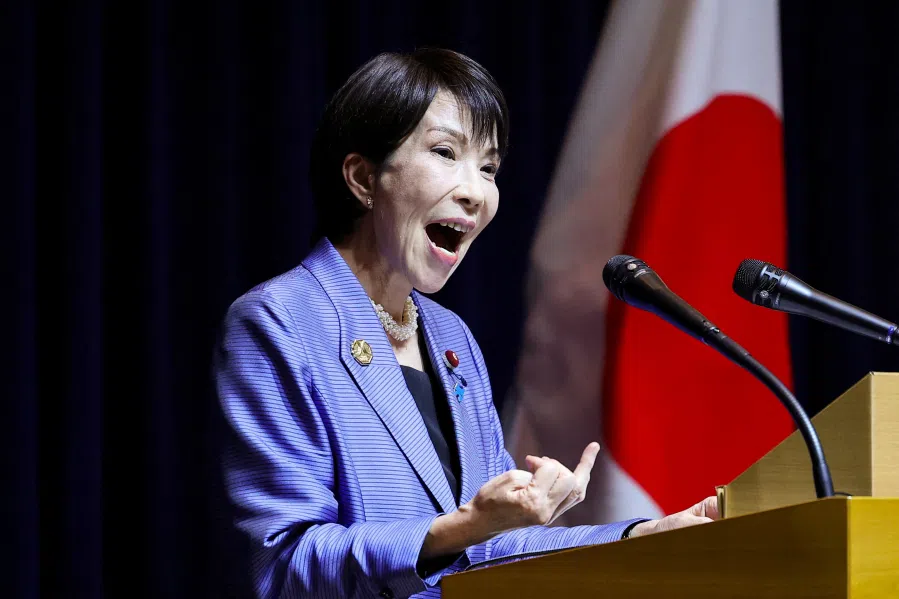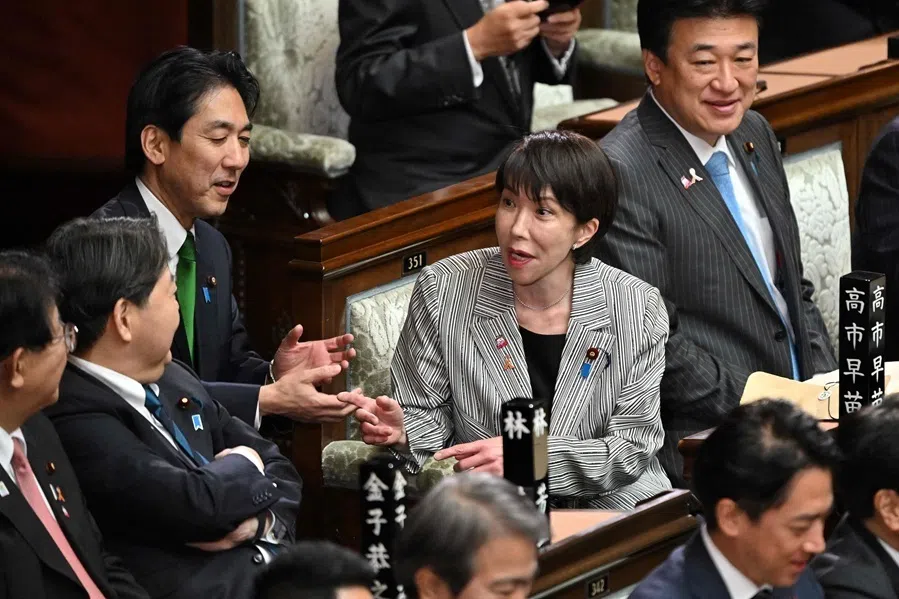Tech supply chain guru Ke Lei: Making friends is more important than making money
Lianhe Zaobao correspondent Woon Wei Jong speaks to Recco Group director Ke Lei, who shares his philosophy that making friends is more important than making money, and getting to know someone should come before doing business.
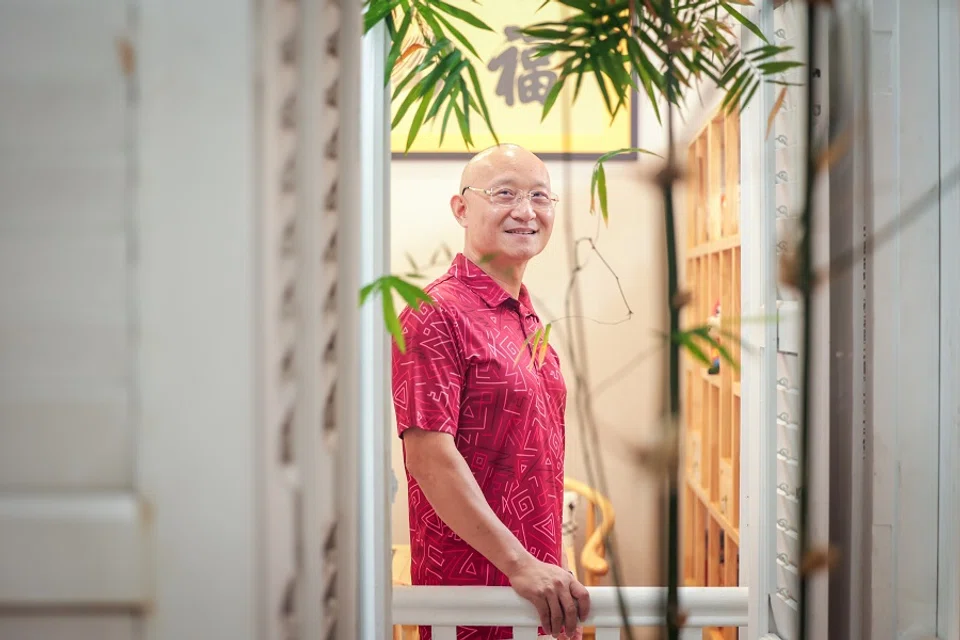
Ke Lei, the 54-year-old director of Recco Group, laments that the individual is a mere grain of sand, tumbling forward amid the time and tide of history. However, he is not disheartened. While some wallow in worldly sorrows, refusing to wake up (长醉红尘不愿醒), when challenges and opportunities come, he prefers to ride the winds and go with the flow (轻拍柳絮乘顺风) to grasp opportunities.
Lei witnessed and participated in the wave of reform and opening up in mainland China in the 1990s, setting up his own business at the age of 26. Seven years later, in 2003, his company had become the exclusive supplier of automation equipment and smart grid services to Foxconn (part of Taiwan’s Hon Hai Technology Group) — the world’s largest contract manufacturer of electronics. Twenty-one years on, Recco Group services Foxconn’s manufacturing sites in 45 cities across China.
When Foxconn’s business took off as Apple’s contract manufacturer, it increasingly focused on smart manufacturing and automation to increase productivity and lower costs. As Foxconn’s exclusive supplier, Recco also grew, and went from small and focused operations to larger scale and strength, venturing into diversified sectors including real estate and food and beverage.
In search of spring in Singapore
But the situation suddenly changed. With the double whammy of the Covid pandemic and shifting supply chains, Lei decided to cut losses and at the height of the pandemic in 2021, sold two industrial parks of just under 220,000 square kilometres in Chongqing at half price, but continued to provide exclusive services to Foxconn. He also slimmed down his real estate holdings, gathering funds to expand overseas.
He went from being landlord to tenant, retaining the company’s core businesses in mainland China, like a larva waiting to emerge in spring.
Lei brought his funds to Singapore. A year ago, he opened a private dining restaurant serving Sichuan cuisine on Pagoda Street in Chinatown, positioning it as an eatery to make friends. The third floor of the restaurant is a tea room where he hosts friends from all over, as he looks out for business partners and new business opportunities.
... he admired how cultured the Taiwanese are, and is happy that Singapore has become a platform for Chinese people from the mainland and Taiwan, as well as all over the world, to interact. “Singapore can do this, and do it well.”
In late July this year, the fast-moving Lei established investment company Recoo (SG), to use Singapore as a funding base to pivot and invest in the region. In August, he travelled to India for negotiations on acquiring a factory in Bangalore, to provide automation equipment and smart grid services to the 90,000-person mega industrial park that Foxconn is currently building there.
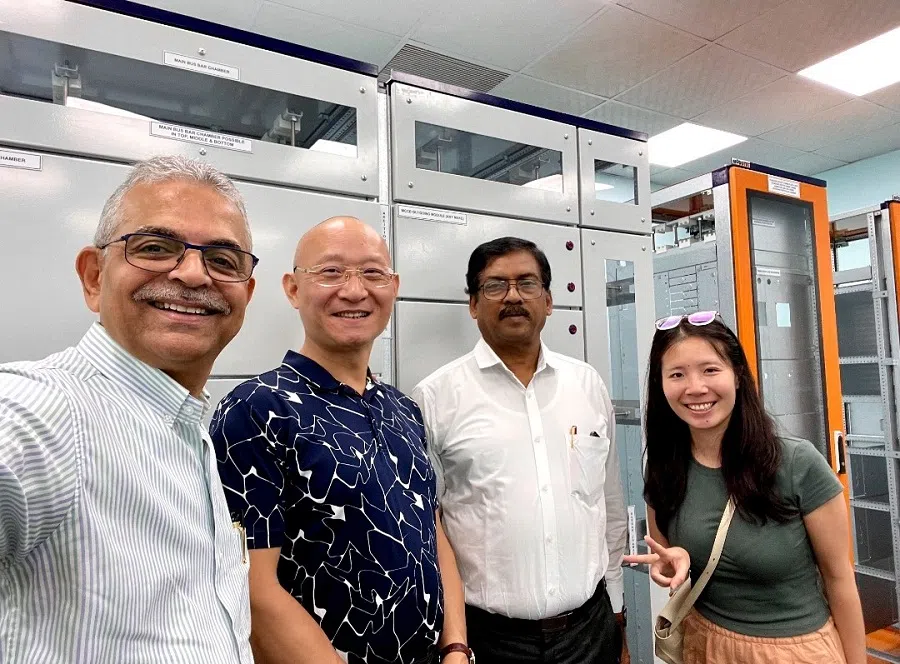
Lei did not reveal to Lianhe Zaobao the scale of funding, but this reporter understands that he set aside over US$100 million for the Bangalore project.
At a recent gathering of mainly Singaporeans and Taiwanese that I attended, Lei greeted everyone gently and humbly. Amid the current tense state of cross-strait relations, mainland-born Lei got on well with the Taiwanese, with no sense of division.
How does he do it? He said: “We are all good friends, we don’t talk politics.” He said he admired how cultured the Taiwanese are, and is happy that Singapore has become a platform for Chinese people from the mainland and Taiwan, as well as all over the world, to interact. “Singapore can do this, and do it well.”
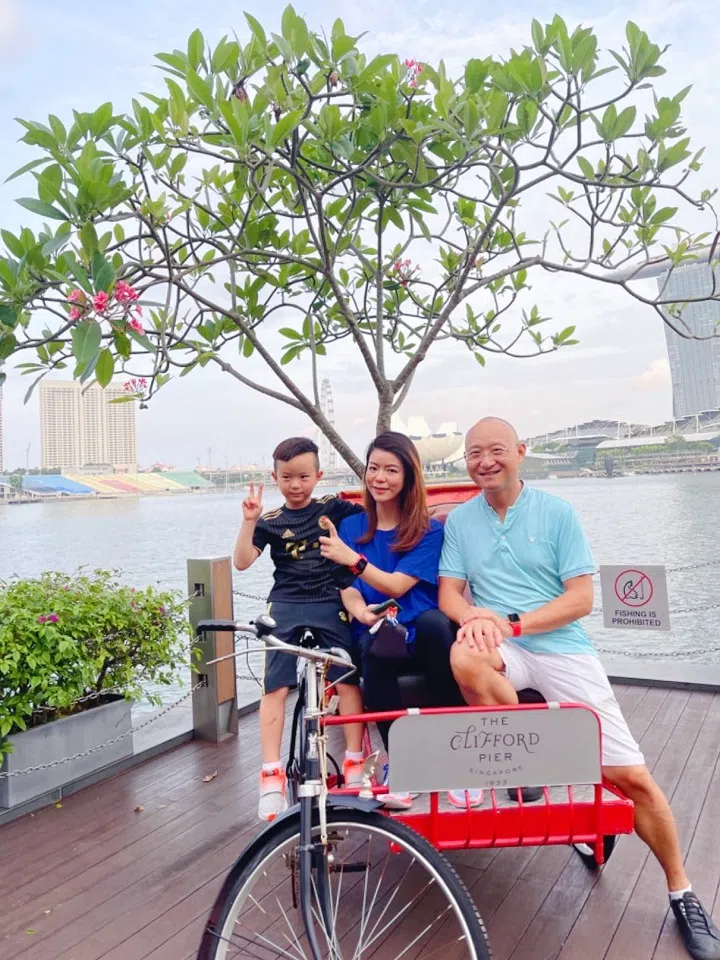
Lei revealed that his wife and children have completely integrated into the local environment and have obtained Singapore citizenship, while he has also applied for citizenship. He arranged to move his family to Singapore ten years ago; his eight-year-old son was born in Singapore, his 21-year-old daughter is an undergraduate at Nanyang Technological University, and his 16-year-old son is studying at Raffles Institution.
Developing technological supply chain and F&B supply chain
In 2018, Lei was the deputy managing director of HollySys Group, which supplied the integrated monitoring system for Singapore’s Thomson-East Coast MRT line. To spend time with his family and take care of business, he flew between Singapore and mainland China almost weekly for years until the pandemic, when he relocated permanently to Singapore.
Over the past few years, Lei has been working hard, actively going to Southeast Asian countries and India to study the market. He is now focused on developing two core businesses: the above-mentioned technological supply chain based mainly in India, and the second is an F&B supply chain business based in Southeast Asia.
Amid the trend of global supply chains relocating and spreading out risk, Lei is optimistic that India’s tech supply chain is about to grow rapidly. He was worried that building his own plant would take too long, so he decided to acquire the Bangalore factory and support the manufacturer Foxconn.
... he is gathering investors to launch a platform like “Alibaba for the F&B industry”, to provide one-stop procurement, logistics, and funding services for industry players.
The F&B supply chain business is a relatively new concept, and he is gathering investors to launch a platform like “Alibaba for the F&B industry”, to provide one-stop procurement, logistics, and funding services for industry players.
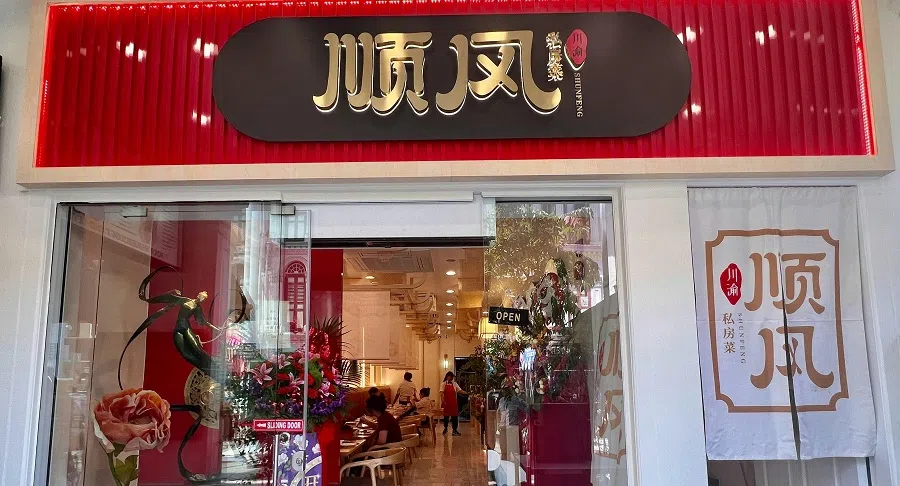
Lei’s Chinatown restaurant is known for its accessible prices. Interestingly, he does not intend to make money from the restaurant, but sees it as a platform for making friends, as well as a testing ground for building an F&B supply chain.
Besides the S$2 million (US$1.55 million) initial investment, he does not mind losing about S$50,000 per month, including the team of 11 people he hired in China who are in charge of cost management, finance, centralised procurement, regular menu updates, publicity and promotion, as well as monitoring hygiene and cleanliness at the restaurant through CCTV, to keep improving customer experience as a comfortable and affordable mass-market eatery providing delicious food.
Lei said: “Right now there’s nobody in F&B doing what I’m doing.” However, he feels this investment — which is expected to continue losing money — is still worth it. “I hope to use the restaurant as a platform, to provide a place to connect, where people can communicate and chat and match resources. I look at value and not price. In making friends, you cannot expect to get returns proportionate to investments.”
Friendship over making money
Lei stressed that in opening his restaurant, making friends comes first, while collaboration is secondary. “When you have something to ask of someone, don’t approach anyone; when you approach someone, don’t ask anything of them.” First open your heart and make more friends, chat over tea, share good food, discuss life, build mutual trust and understanding, then look at how you can help each other and work together. He recently went to seek out business opportunities in India with someone he met at the restaurant who was in the business of clean rooms.
He said he had no intention to take the lead, because the tree that stands tallest gets destroyed by the wind. One has to be humble to make friends. Furthermore, he mentioned that the current major shifts in supply chains are creating new opportunities, making it essential to quickly align each other’s technology, finance and social resources.
Lei wrote a poem to remind himself not to wallow in worldly sorrows and refuse to wake up, but to ride the winds and act decisively in going with the flow when opportunities come — better still to work together and sail towards opportunity. His restaurant is also called Shunfeng (顺风, lit. go with the wind).
Rising from a humble position
Lei’s ancestors are originally from Chongqing. After graduating from Chongqing University, he worked for four years in Shenzhen, which was at the forefront of China’s reform and opening up. At 26, he founded Recco, and transitioned from the civilian-use market to high-end industrial automation equipment and smart grid services. In 2014, he was given a “model worker” award, and has also served as a member of the Chinese People’s Political Consultative Conference.
On what has left the deepest impression on him, he said he was very inspired by The Story of Shrimp Ball (《虾球传》), a popular TV series in mainland China when he was in his sixth year of elementary school. The show’s protagonist came from the bottom of society and suffered, then went to Nanyang (Southeast Asia) and succeeded through hard work. This encouraged Lei to start from nothing, and even venture overseas now.
Having gained from China’s reform and opening up, he is grateful to late Chinese leader Deng Xiaoping, particularly his simple, pragmatic saying that “it doesn’t matter if a cat is black or white, as long as it catches mice”, which he uses to teach his children to be brave enough to try, and to find solutions to succeed in their own way.
On the wall of the tea room on the third floor of the restaurant hangs two lines of poetry: “I will reach the summit (of Mount Tai), overlooking the other mountains, which will seem small.(会当凌绝顶,一览众山小) .” With these lines from the poem “Looking at Mount Tai” (《望岳》), composed by Tang dynasty “poet sage” Du Fu at the age of 24, Lei hopes to continually better himself.
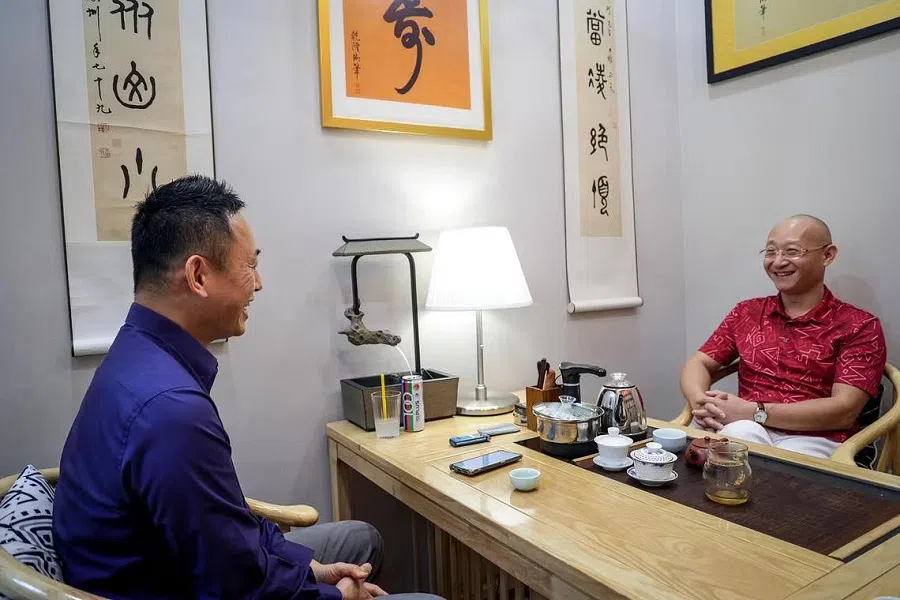
Another work on the wall is four words of calligraphy, a reproduction of Emperor Qianlong’s writing: 福田花雨 (meaning that doing good deeds is like sowing seeds in a field, which will lead to growth and blessings like rain and blooms). Lei reminds himself to face the good and bad in life calmly and with serenity, and not get trapped in anxiety, impatience, and rage.
Lei noted that a lot of foreign funds have sought investment opportunities in Singapore, only to become “hot money just passing through without landing”.
How Singapore can make better use of foreign funds
Lei says Singapore has a lot of foreign investments and R&D capacity, but advanced technology needs to go beyond laboratories. And if both can be closer and communicate more frequently, the potential would be boundless.
Amid escalating geopolitical tensions and social volatility, Singapore has benefited from wealthy immigrants in recent years. Lei noted that a lot of foreign funds have sought investment opportunities in Singapore, only to become “hot money just passing through without landing”.
On the other hand, A*STAR and universities have also developed many advanced technologies. The availability of funding and advanced technology is Singapore’s advantage, which many countries lack.
However, based on his dealings with research institutions in Singapore over the past ten years, Lei feels the connection between foreign funds and local technological results is not smooth enough, and both sides have yet to come up with an ideal business model.
Lei said Singapore has funding and technology in place; what is missing is a more flexible channel for dialogue and communication to “break through the paper-thin barrier”, which will enable the two to integrate. “This is a challenge for Singapore, and also an opportunity.”
Given Singapore’s small size and high costs, working with Johor would enable Singaporean firms to “gain strategic breadth and depth”.
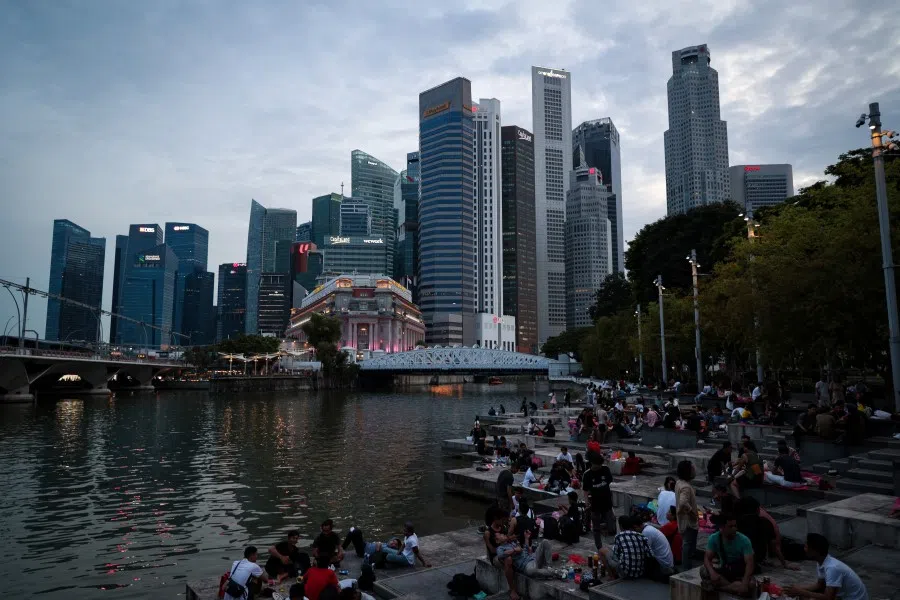
He said communication in Singapore usually means seminars and forums, or providing a telephone number and email. However, for many foreign entrepreneurs, it is more important to first become friends and build mutual trust, and understand each other’s needs, in order to come up with a tailored model of cooperation. Only then can there be heavy investment and pursuit of mutual benefit.
Geopolitical prudence to build an international brand
Lei said Singapore has an edge in global branding mainly because of its prudent handling of geopolitics and does not make people feel that it poses a threat. He gave the example of how when he went to India to invest, the fact that his company was registered in Singapore made it a lot less troublesome, gaining him more trust and convenience.
He also shared that many investors, including himself, are keeping a close eye on the Johor-Singapore Special Economic Zone (JS-SEZ) agreement that was slated to be signed at the end of the year. Given Singapore’s small size and high costs, working with Johor would enable Singaporean firms to “gain strategic breadth and depth”. Compared to setting up factories in other countries, the shorter distance will definitely increase productivity.
Chinese businesses’ ability to rebound cannot be overlooked
Lei feels that while the continued involution — cutthroat competition — in China’s industries does not look good, the rebound potential of mainland Chinese businesses cannot be overlooked.
Lei has tasted the fruits of China’s rapid economic growth, and also gone through the enormous impact of its economic slowdown. If he had stayed in mainland China, he would also have faced intense involution, meaning the negative consequences of too much internal competition given limited resources.
... he firmly believes in the resilience of the Chinese people, and their ability to rebound and use the knowledge they have gained, like “cockroaches that cannot be killed”, which is why he decided to hold on to his business in mainland China.
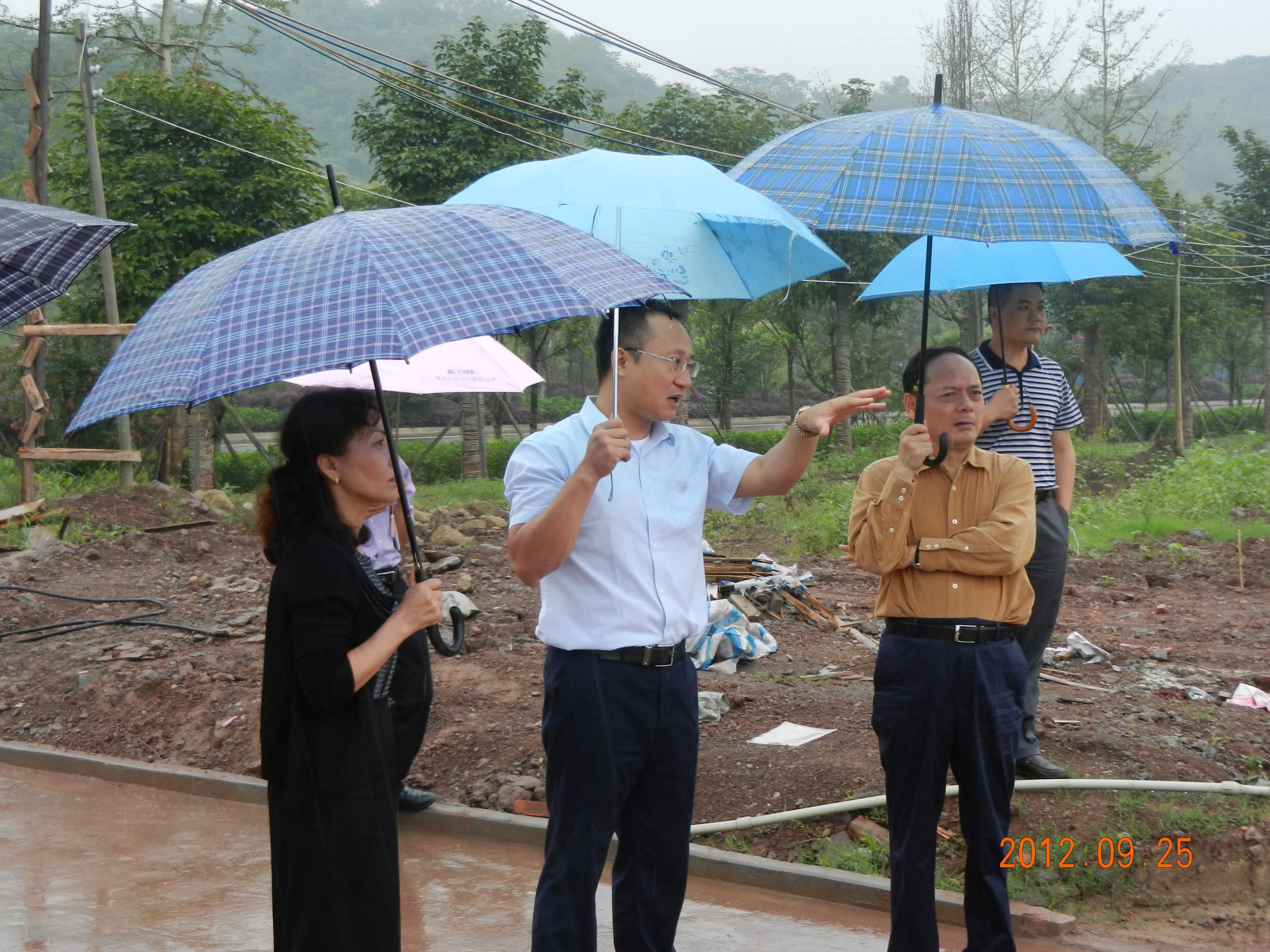
Lei sees involution as a struggle for survival, where it’s easy to sink and become irrelevant. When an opportunity arises, there is a rush to seize it. While price wars may offer short-term benefits to consumers, they harm the healthy development of industries. Prolonged involution is merely a temporary fix that ultimately leads to disaster for both society and businesses.
However, he firmly believes in the resilience of the Chinese people, and their ability to rebound and use the knowledge they have gained, like “cockroaches that cannot be killed”, which is why he decided to hold on to his business in mainland China. “As long as the green hills remain, they can lie dormant and stay just alive, and winter will pass. As long as the roots remain, when spring comes, they will sprout and bloom.”
With nearly three decades in tech supply chains, Lei believes that individual efforts are limited; success and breakthroughs in this field require collaboration. “Sometimes, taking a step back allows for clarity. Don’t get caught in involution. By shifting your perspective — whether it’s stepping back or exploring new markets — you might lose something at sunrise but gain something at sunset. Embrace change and broaden your horizons; it could lead to new ideas and solutions.”
As a new immigrant, he is grateful for Singapore’s business-friendly environment. “Everyone should try to expand their assets and make more friends in Singapore, because there’s always something to learn from everyone.”
This article was first published in Lianhe Zaobao as “科技供应链达人雷珂 旧雨新知几杯茶 蓄势只待东风起”.
